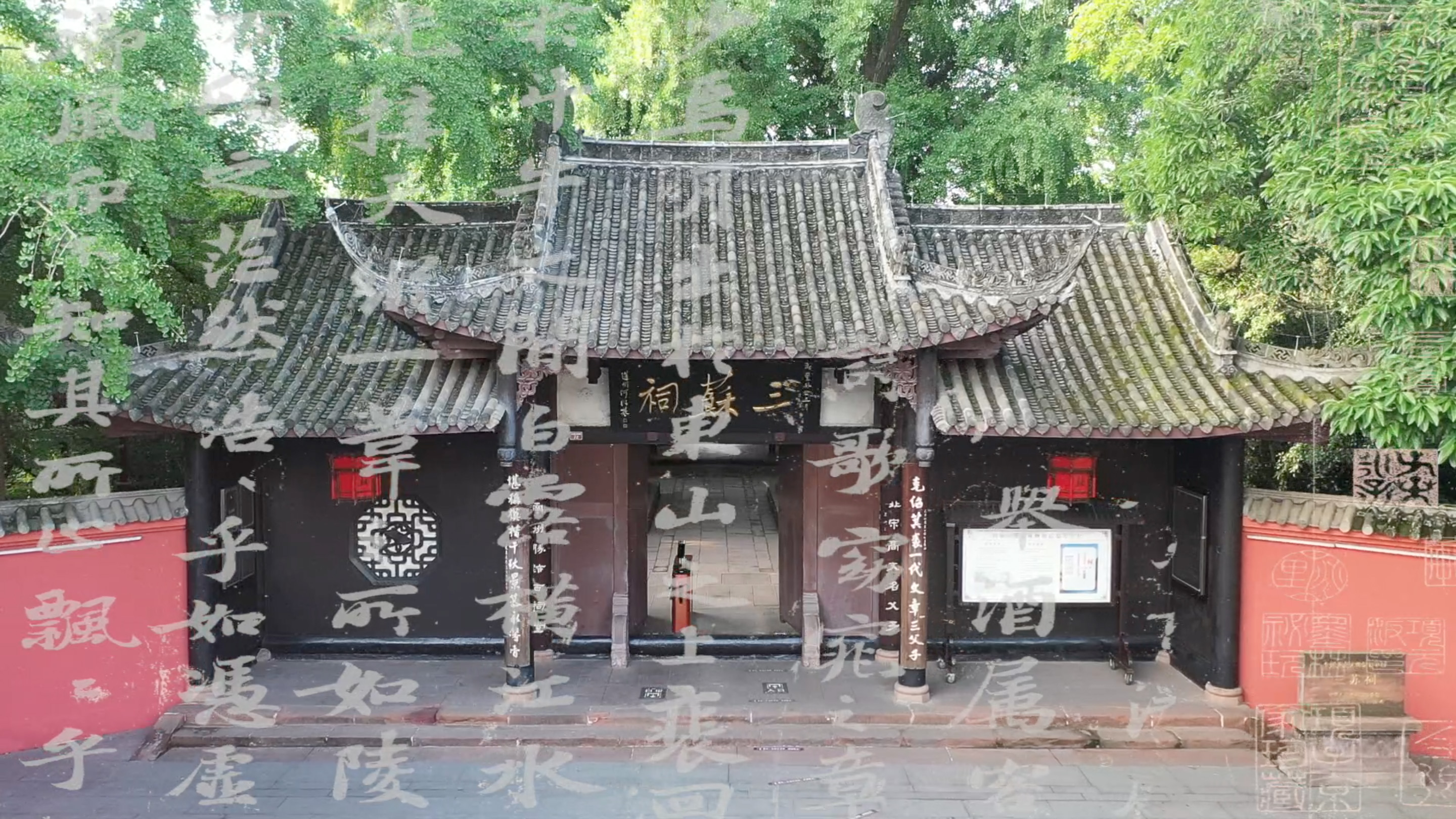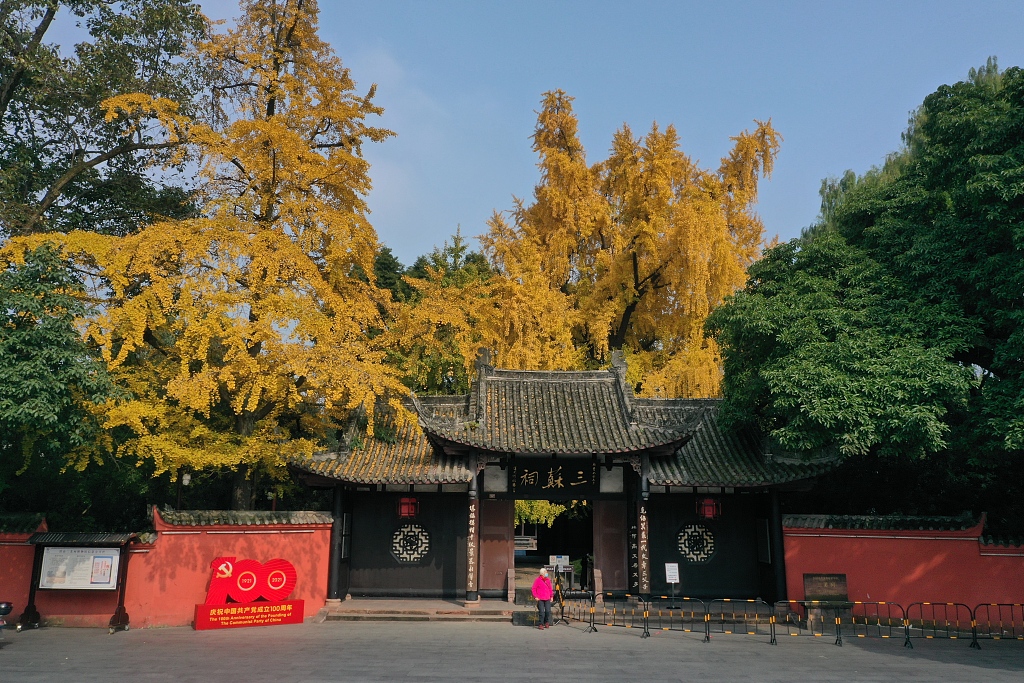01:43

San Su Ci, the memorial temple and former residence of three literary masters, Su Xun and his two sons, Su Shi and Su Zhe, in Meishan City, southwest China's Sichuan Province is a national-level cultural heritage and popular scenic spot.
Su Xun, Su Shi and Su Zhe from the Northern Song Dynasty (960–1127) are widely known as recognized figures in classical Chinese literature. They left behind many influential cultural works like poems, lyrics, prose and essays.
Su Shi, the son of Su Xun, is considered as a Chinese cultural icon living in the 11th century. He wrote the far-reaching ode "Chibi Fu," or "Red Cliffs Rhapsody," which commemorates the fierce battle at the Red Cliffs.
The battle sustained the national schisms that trisected the collapsing Eastern Han Dynasty (25-220) into the Three Kingdoms (220-280). The piece expresses what the author and his friends saw and felt during their boating tour around the Red Cliffs, reflecting the author's nostalgia for the past and the present on a moonlit night. Some words of this ode have survived to this day.

San Su Ci, the memorial temple and former residence of three literary masters, Su Xun and his two sons, is located in Meishan City, southwest China's Sichuan Province. /CFP
San Su Ci, the memorial temple and former residence of three literary masters, Su Xun and his two sons, is located in Meishan City, southwest China's Sichuan Province. /CFP
The temple has a collection of thousands of documents related to the Su family, a display of the family's rules, regulations and life achievements, as well as the stele forest of Su Shi's calligraphy. In January 2018, UNESCO listed the temple as a World Heritage Site, recognizing its contribution in promoting Chinese culture around the world.

